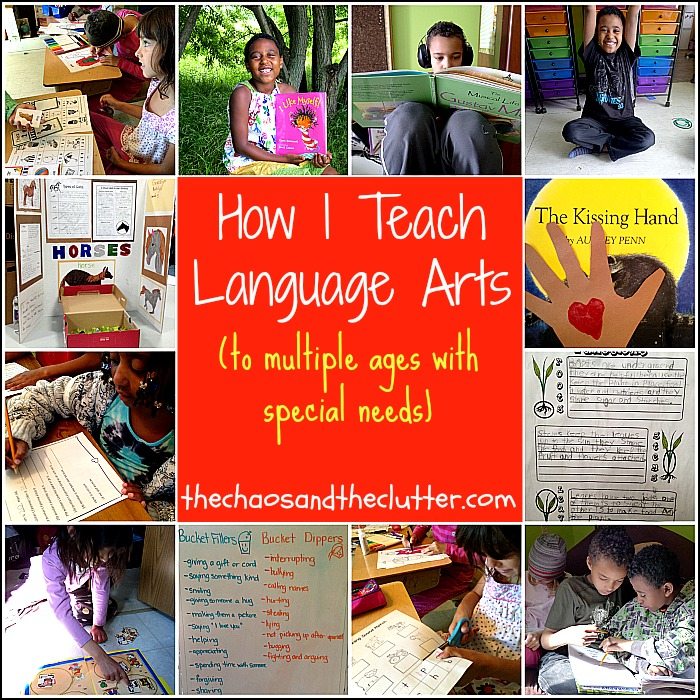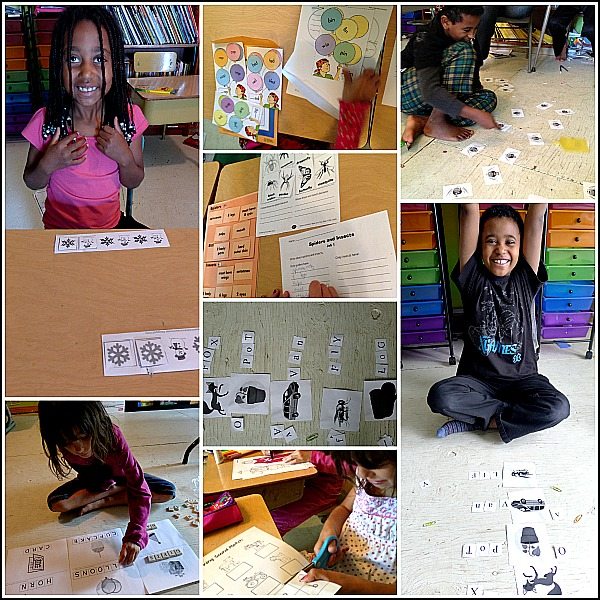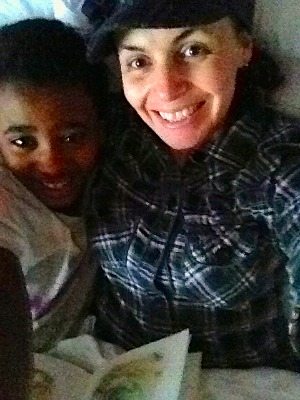I have probably the world’s most eclectic program put together for our language arts homeschool program. I have tweaked it over the years and am always looking at ways to add to it that would be effective with my kids or take things out that are no longer working well.

Workboxes
Workboxes are a big part of our homeschool days. I find it an easier way to organize our day and the kids respond very well. There are so many benefits to this system including small things like the fact that the kids have to get up out of their desks in between each activity and that physical change is good for them. Our son Einstein who has Aspergers likes that with the workbox system lets him know exactly when the work will be done. I have written an in-depth explanation of how we use our workboxes if you would like more details in how to implement this in your classroom.
There are several language arts activities put into the weekly workbox rotation. These change from week to week but include audio books for them to listen to at the listening station, file folder games, Take It to Your Seat Centers from Evan Moor (we have all levels and all types), and printables from different websites.
Most of the printables I find at:
Free Homeschool Deals
Confessions of a Homeschooler
This Reading Mama (some excellent language arts resources here)
3 Dinosaurs
1+1+1=1.

Spelling
I have in the past used actual programs such as All About Spelling which is a really great program and helped a lot but what works for us right now is a very unstructured made by me program based on the book A Measuring Scale for Ability in Spelling. This little gem of a book is one that I have had since one of my sisters-in law gave it to me in about my first year of homeschooling (for the record, that is over a dozen years ago at least!).
It contains a list of the 1,000 most common words, in the order of their frequency in the English language. I sometimes use this list to choose sight words for the kids to learn. It just makes sense to me that teaching them the most commonly used words would be the most useful.
The words are then divided into groupings based on determining spelling at grade level. I also find this tool useful and these lists are what I use for impromptu spelling tests. For me, the grade level bit isn’t as relevant as with the kids’ special needs, my expectations are adjusted but it helps give me an idea of where they are at.
Phonics/Reading
As with everything, I have found that hands-on works the best for most of our kids in learning phonics. We use letter cubes for blends and sentence building tiles.
We always have one or two chapter books on the go that are read-aloud and each day, we also read at least one or two other read-alouds. These are some of our favourites.
We also do activities to accompany the books we read. We expand the learning using food, sensory bins, crafts, writing, and notebooking.
I do one-on-one reading with my early readers. This is a bonding time as well as a learning one.

Grammar
I love Daily Grams! I have been using it for many years and I like that it’s not busy work. It doesn’t make the kids do 25 of the same thing over and over on a page. It teaches letter writing, punctuation, plurals, capitalization, dictionary skills, sentence combining, synonyms and antonyms, contractions, and more.
Handwriting
We have been using A Reason for Handwriting for a number of years. It allows the kids to go at their own pace.
Poetry
We haven’t done a lot of work on poetry except for a brief study of Haikus, but each week the kids work on memorizing a poem. Sometimes it’s just a goofy poem like something from Shel Silverstein while other times it is a short poem by Frost or Blake. Right now, they are memorizing The Cremation of Sam McGee which is a lot longer than I remembered and we may stop halfway because it’s also more morbid than I remembered (!) but they enjoy memorizing poems and it is giving them a foundation in poetry appreciation.
Poems are also a place that we find a lot of our vocabulary words to discuss.
Sentence Writing
I have written about how I teach strong sentence writing which includes a homemade mad-libs type of game and a brainstorming technique found in the book Write a Super Sentence.
Board Games
Our family really enjoys board games and they are such an easy and fun way for kids to learn. Games such as 5 Second Rule (Spit it Out!), Scrabble Junior, Boggle Junior, and Apples to Apples get pulled out on almost a daily basis around here.
Our made up game of dictionary wars which means racing against each other to locate a word in the dictionary.
Pop for Sight Words (we have the first and the second one) have been excellent for our early readers and the way that the game works, it can be played by all different skill levels at the same time with everyone having a chance to win.
Other
Language Arts gets incorporated in many other areas of our homeschooling. The kids gets the opportunity to practise their writing in unit studies, notebooking, science, history, and Bible. The kids enjoy writing most when it is for practical applications such as letter writing or list making.
